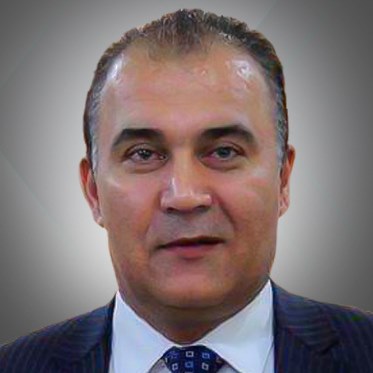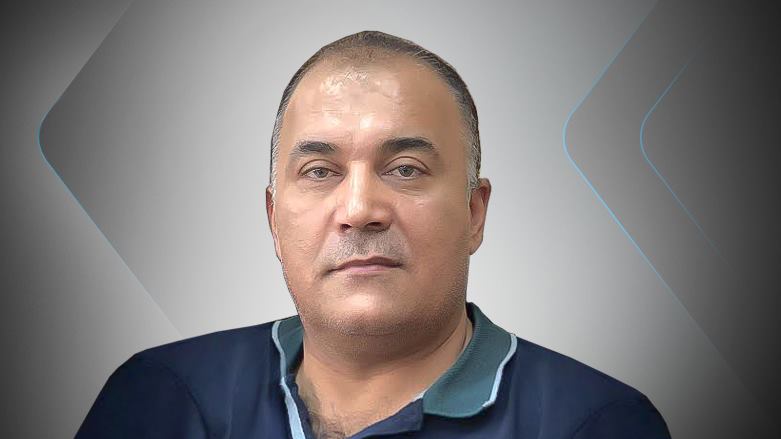
Awat Mustafa
Editor
My complex journey to discover Kuwait
"Middle Eastern countries such as Iraq and Syria can and should learn from Kuwaiti tolerance and Kuwait’s peaceful strategy."

When I was only 17-years-old, I, like many other Iraqis, began to learn for the first time about Kuwait as a country and its people. This was not quite what you might think such learning might be, however. After the end of the eight years’ war between Iraq and Iran in 1988, the northern part of Iraq where I am from, Kurdistan, became a popular tourist destination for both Saudi and Kuwaiti nationals. By 1989 and 1990, we were witnessing thousands of beautiful, posh American-made cars passing through. In the town where I lived, many other boys and I watched them with hopeless stares, wishing we had the same opportunity to travel to other countries in nice cars as those Kuwaitis.
Even though most Iraqi people were jealous of the lifestyle of their neighboring nation, I could see most, especially people from Baghdad, Basra, and northern cities, happy to have the tourists visit. Soon, though, the optimistic view of Kuwait changed something that still has an impact on the mentality of many Iraqis.
Before the invasion of Kuwait in 1990 by Iraqi Special Forces, vicious stories were spread throughout Iraq of the “evil” of the Kuwaiti people, that they were “demoralizing” Iraqi society by sleeping with Iraqi women, that they paid thousands of Iraqi dinars to have sex with underage girls. The Kuwaiti government was said to have no respect for Iraq sovereignty, to be stealing Iraqi oil from the southern border. Some wild allegations were too unpleasant to put into words even now.
So, you can imagine how a hopeless boy like me with no prospects, unsure how to survive the hardships we faced and escaped from poverty, would feel. Even though I came from a non-Arab background, and by then my family and hundreds of thousands of other Kurdish families had been forced out of our homes by Saddam Hussein’s campaigns against us, I could not help but think about those allegations. My village had been destroyed; we literally had nothing – to say nothing of the chemical attack on the town of Halabja and the extermination of 182,000 Kurdish civilians in the Anfal campaign – but still, we depended on and believed in the Iraqi state media’s propaganda campaigns against Kuwait. We had no other source of information.
Everything I heard made sense to me. Why were the Kuwaitis able to drive big cars? What if everything else were true, too?
These prejudices stayed with me even after I migrated to the UK. Even though I had the opportunity there to meet a few Kuwaitis in person, regardless of the invasion of Kuwait, and the true reasons for the invasion which I discovered there, I still couldn’t help thinking of Kuwaitis as “hostile.” I found myself not wanting to learn much about them simply because I was afraid to find out the truth. I feared that if everything we were told was true, I did not know how I would handle it, so I avoided deep conversation with anyone from Kuwait.
Many years passed and I went back to the Kurdistan Region to help my people there. During the Islamic State’s (IS) brutal attack on Iraqi civilians, I was on the front lines working with one of the local NGOs, coordinating between national and international government agencies and non-government organizations. At this point, the Kuwait diplomatic mission began operating in Kurdistan, where millions of other Iraqis had sought protection. The situation was desperate, and the country was in a real humanitarian crisis, and neither the Iraqi nor the Kurdish authorities had the necessary capacity to provide basic needs for those millions of people who were living under canvas in the camps and elsewhere.
The first role adopted by the Kuwaiti mission was to assist in this humanitarian crisis. It turned out the IS attack and the crimes they committed, so tragic and heart-breaking, also opened a unique opportunity for Iraqi people to see and to know the real Kuwaiti people: Kuwaitis as they are, not as the previous Iraqi regime portrayed them.
In the last four years, I have worked with various officials from Kuwait, from top diplomats to charity volunteers, some of them very secular, others moderate Muslim, some Shia and others from a Sunni background. I also visited Kuwait and had an opportunity to meet many Kuwaiti citizens and experience their hospitality.
I heard no adverse comment, saw no hostility toward Iraqis. In fact, most Kuwaitis want to help Iraqi people and pray for peace and reconciliation among Iraqis themselves. My discovery was exactly the opposite of what I had heard: it turned out Kuwait is the friendliest nation in the Middle East.
As my relationship developed with Kuwaitis and my confidence in them grew, I thought it was time to find out the truth about all those pre-invasion stories. I began to ask how Kuwaitis saw Iraq before the war, and how they felt after Iraq had destroyed Kuwait and killed so many innocent Kuwaitis.
Throughout my curious questioning, the words I heard consistently were tolerance, reconciliation, and forgiveness. The Kuwaiti consul general in Erbil and, separately, the deputy consul general said:
“The difference between the regime of a tyrant and a regime of peace-seekers can only become apparent in difficult times. When we saw the Iraqi people in need of help, we wanted to be the first to help. We wanted to tell Iraqis that we had nothing against them and that we wanted to make peace. Our humanitarian mission not just in Iraq but everywhere else is a reflection of Kuwaiti tolerance and a peace-loving society.”
Since 2014, Kuwait has donated over 200 Million USD for humanitarian and post-crisis reconstruction work, as well as hosting reconstruction donor conferences and managing other development projects which will have a positive impact on the lives of Iraqi people.
The current Kuwaiti mission in Iraq and the humanitarian and mediation engagement to avoid further conflict in the region by the Emir of Kuwait is a great example of a human effort to put the past behind us, and learning to adopt a non-violent approach toward former enemies.
Middle Eastern countries such as Iraq and Syria can and should learn from Kuwaiti tolerance and Kuwait’s peaceful strategy. If Kuwaiti people could learn to forgive their former oppressor, then it should be much easier for people within those countries to forgive each other and work together to build a less hostile future for their children.
Awat Mustafa is a board member and director of public relations for the Barzani Charity Foundation. He holds a Master of Science in International Development from Newcastle/Northumbria University in the United Kingdom.
The views expressed in this article are those of the author and do not necessarily reflect the position of Kurdistan 24.
Editing by Karzan Sulaivany